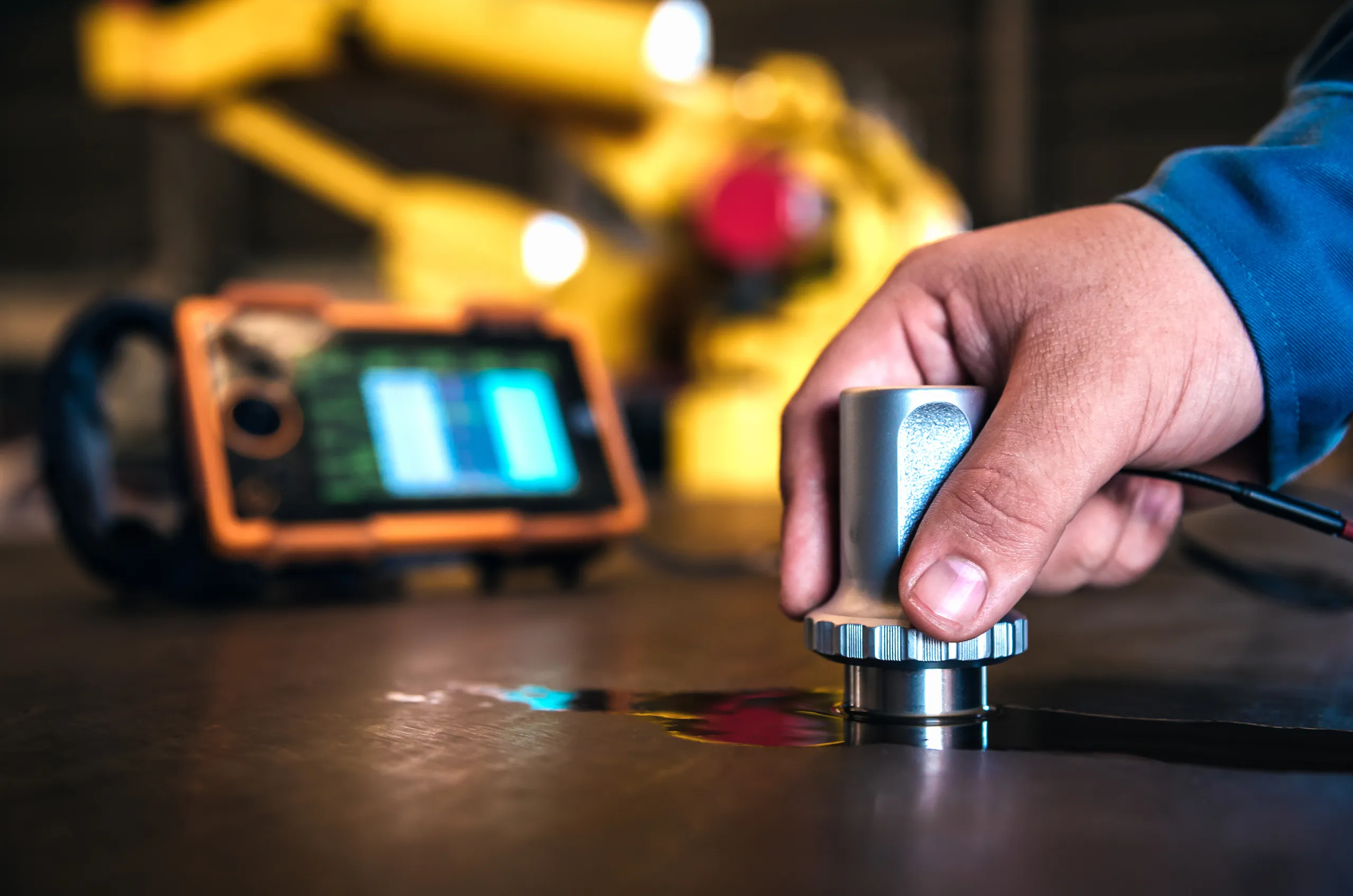ASME B31.1 Welded Joint Non Destructive Testing for Automotive Systems
The ASME B31.1 standard provides a framework for the design, construction, and operation of pipeline systems, which includes specific requirements for non-destructive testing (NDT) of welded joints to ensure structural integrity and reliability. This service focuses on ensuring that automotive systems meet these stringent standards, particularly in high-pressure applications where safety is paramount.
The process involves inspecting the welded joints without compromising their structural integrity or performance. NDT methods used include ultrasonic testing, radiographic examination, magnetic particle inspection, and liquid penetrant inspection. These methods are chosen based on the specific requirements of the automotive system being tested.
For ASME B31.1 compliance, the following steps are typically followed:
- Preparation of the welding area to ensure a clean surface for testing
- Application of the appropriate NDT method(s) based on material type and joint design
- Data collection during the inspection process
- Analysis of the collected data to determine compliance with ASME B31.1 standards
- Generation of a report detailing the testing results, recommendations for corrective actions if necessary, and adherence to safety protocols
The service also includes training sessions tailored to the specific needs of automotive manufacturers and suppliers who require personnel certified in NDT methods relevant to ASME B31.1.
Our team of experts uses advanced equipment and software to ensure accurate and reliable testing results. This approach not only ensures compliance with international standards but also enhances the overall safety and performance of automotive systems.
The importance of ASME B31.1 NDT cannot be overstated, especially in critical applications like fuel lines, brake lines, and other components that are subject to high-pressure environments. By adhering to these stringent testing protocols, we help ensure the longevity and reliability of automotive systems, contributing significantly to road safety.
Our service is designed to meet the rigorous demands of ASME B31.1, providing a comprehensive approach to non-destructive testing that includes:
| Testing Method | Description | Purpose |
|---|---|---|
| Ultrasonic Testing (UT) | Uses high-frequency sound waves to detect flaws in the material. | To identify internal defects and ensure structural integrity. |
| Radiographic Examination (RE) | Involves exposing a component to radiation, typically X-rays or gamma rays, to visualize the inside of the weld. | To reveal any cracks, porosity, or other imperfections that could compromise safety and performance. |
| Magnetic Particle Inspection (MPI) | Uses magnetic fields to detect surface and near-surface flaws in ferromagnetic materials. | To identify defects that may not be visible through visual inspection alone. |
| Liquid Penetrant Inspection (LPI) | Involves applying a penetrant to the surface of the material, allowing it to seep into any openings, and then removing excess penetrant before applying developer to highlight the flaws. | To detect surface-breaking defects in non-ferrous materials. |
By leveraging these advanced methods, our service ensures that automotive systems meet the highest standards of quality and safety. We work closely with clients to understand their specific needs and deliver tailored solutions that align with ASME B31.1 guidelines.
Scope and Methodology
The scope of our service includes a detailed examination of welded joints in automotive systems using non-destructive testing methods compliant with the ASME B31.1 standard. This involves several key steps:
- Initial consultation to understand client requirements
- Evaluation and selection of appropriate NDT methods based on material type, joint design, and application
- Preparation of the welding area for testing
- Conducting the selected NDT methods
- Data analysis and interpretation
- Generation of a comprehensive report detailing test results and recommendations
The methodology ensures that all aspects of the ASME B31.1 standard are adhered to, providing clients with peace of mind regarding the safety and reliability of their automotive systems.
International Acceptance and Recognition
- ASME B31.1 is widely recognized in North America for pipeline design and operation standards.
- The standard's acceptance extends to the global market, with many countries adopting its principles for similar applications.
- NDT methods compliant with ASME B31.1 are accepted internationally, ensuring seamless compliance across borders.
- Certification from our service is recognized by leading automotive manufacturers worldwide.
The international acceptance of ASME B31.1 and its NDT methods underscores the global significance of this standard in promoting safety and reliability in pipeline systems, including those used in the automotive industry.
Environmental and Sustainability Contributions
The use of non-destructive testing in compliance with ASME B31.1 not only ensures the highest standards of quality and safety but also contributes positively to environmental sustainability:
- By identifying flaws early, we reduce the need for corrective actions that could lead to material waste.
- Efficient testing processes minimize energy consumption during inspections.
- The use of advanced technology in NDT methods helps reduce the carbon footprint associated with manufacturing and maintenance.
Our service plays a crucial role in promoting sustainable practices within the automotive industry, ensuring that safety standards are met without compromising environmental responsibility.





